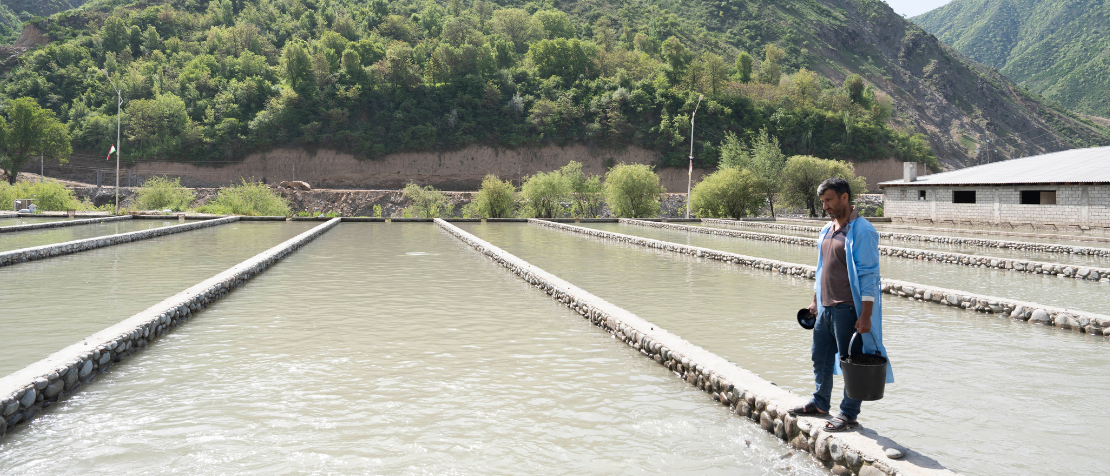Tajikistan hosts workshop to promote gender-transformative approaches in fisheries and aquaculture

©FAO/Aziz Sattori
Women across Central Asia and the Caucasus play a critical role in fisheries and aquaculture value chains. Typically, they are involved in pre- and post-harvest activities, such as net mending, fish processing, marketing and trade, while men take on fishing roles, particularly in coastal and deep-sea waters. Women’s involvement often lacks formal recognition, despite being central to household and community food security. Fishing itself is traditionally considered a male occupation, often involving higher occupational risks.
In Tajikistan, women represent the primary labour force in agriculture and contribute significantly to food security. However, their work is often informal, undervalued, and undercompensated. With many men migrating away from rural areas, empowering women has far-reaching benefits, not only for food security, but also for increasing agricultural productivity and supporting rural development overall.
To address these challenges, the Central Asian and Caucasus Regional Fisheries and Aquaculture Commission (CACFish), in collaboration with the Regional Office for Europe and Central Asia of the Food and Agriculture Organization of the United Nations (FAO), and FAO’s Representation in Tajikistan, convened a national workshop in Dushanbe to bring together policymakers and practitioners in support of gender-transformative approaches in the fisheries and aquaculture sectors.
Gender-transformative approaches are strategies that aim not only to support rural women but address the root causes of gender inequality by engaging women and men to change the underlying norms and power structures that underpin inequality.
The workshop drew on findings from a regional gender study conducted by FAO between 2022 and 2024 across CACFish member countries, including Tajikistan. The study provided evidence-based insights into the specific challenges and opportunities for integrating gender considerations into fisheries and aquaculture policies and programmes.
Participants explored practical ways to embed inclusive and equitable approaches in their work. These efforts respond to persistent challenges rooted in deeply ingrained social norms that limit women’s recognition, economic empowerment and participation in decision-making. When left unaddressed, such inequalities reinforce power imbalances and contribute to the invisibility of women as economic actors, knowledge holders and agents of change.
A key message from the event was that sustainable fisheries and aquaculture systems cannot be achieved without addressing gender-based barriers and enabling women to take on visible, empowered roles across the entire value chain. Achieving this requires effective and participatory policy action.
About CACFish
The Central Asian and Caucasus Regional Fisheries and Aquaculture Commission (CACFish) is a regional fisheries management organization that promotes the sustainable development of fisheries and aquaculture in Central Asia and the Caucasus. As part of its biennial work programme, the Commission has prioritized gender equality, undertaking several studies focused on the roles, challenges and contributions of women and men in the sector. By generating data and promoting dialogue on gender dynamics, CACFish supports member countries in designing more inclusive policies and practices that amplify women’s roles in building sustainable aquatic food systems.
